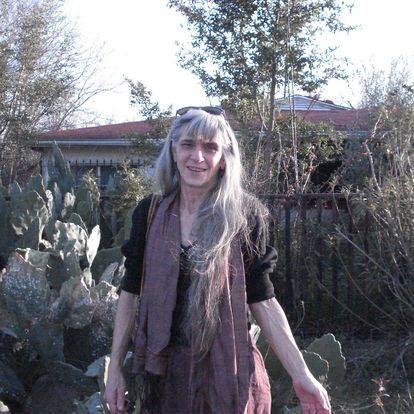
Pandemic is a Place Where Harassing Migratory Birds is Essential Business #1
First days of December 2019, Bird Island was denuded by San Antonio Parks
following plans from USDA Wildlife “Services.”
All nests were removed from Bird Island; six,
transferred to Edward’s Tank at Mitchell Lake Audubon, way south of town.
Around those same days, on the other side of the earth, a random corona virus,
became animal borne, then took up residence in a human host.
Later in December, as more people sickened in Wuhan,
pyro-techniques, lasers, drones, scarecrows,
and noise warfare were used against the Ardeidae Family.
Egrets who had not already migrated (including some who fledged last Spring)
roost on small trees along the shoreline behind the island
from which the Ardeidae Family had been displaced.
A few cormorants remained, mostly on the ground:
Perhaps they were contemplating rebuilding there on barren dirt–
(most of the branches that held the nests had been extracted, along with the nests.)
They were not alone in Westside barrio displacement—
The city was displacing Alazán Apache Courts residents as well.
Generations of birds and of people who had shared decades, neighborhoods,
la paz en el barrio were sent packing.
56 cormorant fledglings were taken from nests and under Wildlife Rescue’s wing,
15 were still alive at end of January 2020.
By then, the Covid 19 had spread undetected, in the US.
One sunny December afternoon, two Great Egrets
venture out on the island’s bare ground;
they arch wings and dance, rising in rhythm with each other.
Perhaps they know that scientists now say mating seasons are being disrupted by climate chaos.
Perhaps they know that when the declared pandemic spreading in San Antonio
closes all schools, churches and “non-essential business”
they, along with other egrets and a squad of Little Blue Herons
will be harassed and for a second time, displaced
from the trees they choose for roosting along the San Antonio River near the Blue Star.
Perhaps they fear the spirit of social distancing will soon prevail in the avian world too.
Perhaps they dance to the drums of rhythms we cannot hear.
_____
Found Poem: Border Wall Public Comments Submitted Fall,07
Born into Poetry on the Day of the 67th Nakba in Palestine
The border wall, framed by proponents
as some small regional sacrifice
for a common “security”
offers bogus defense from xenophobic fears–
a security with no credible grounds.
The wisdom & practice of cultura ambiental
suggests such invasive structures diminish the commons
(both cultural and ecological)
that come together in the Texas/ Northeastern Mexican borderlands
and via migration and immigration, reach beyond the ends of our continents.
It would be the most mean-spirited continental irony
to diminish the commons at the main point of confluence,
but that is precisely what is proposed.
In dichos & research, “neighborly” people maintain the safest neighborhoods.
In daily wisdom of the borderlands, the truism applies to countries, as well.
Our homeland is secure when we are respectful toward our neighbors,
engendering their understanding of us, and their goodwill toward us.
We borderlanders protect our commons, which in turn protects us.
Before cross border shopping, immigrant labor, ecotourism,
before the border itself, we shared ecosystems and cultures—
those original brushlands, river deltas, coastal plains
now altered or destroyed, leave behind remnants
that, we on both sides, en ambos lados,
hold in common.
When connected by wildlife corridor
loss of a few acres of habitat on either side,
destroys more than those acres–
the eco-systemic commons is a neighborhood,
a secure, sustaining homeland.
The endangered ocelots’ habitat is most famous,
but a border wall’s impacts would be a loss to all.
The destruction of a single species is an irreversible loss.
The destruction of the trust, we hold with Mexico
in our common natural heritage
will take with it both the confianza, the shared respect between neighbors
and the irreplaceable events of every morning and evening, day and night,
in this nexus of migratory routes for birds and butterflies,
in the meeting of tropics and subtropics,
in the merging of gulf waters, coastal wetlands, and inland brushlands,
in the watersheds of the Rio Grande and the Arroyo Colorado
and in the mezcla at Boca Chica Beach
where two countries, one rio, and one gulf converge.
Heed the words of those around the world
separated from family, friends, and neighbors
by the walls of outside forces. For the sake
of all who live in or pass through the borderlands,
from the tiny, rare butterflies
that occasionally leave their Mexican homelands
to grace the Rio Grande Valley with their presence
to the elusive ocelot, to the families with generations on both sides
who cross for quinceañeras, and weddings and births and wakes,
and for trekking with abuelos and primas on the monte,
even for the sake of the cross border shopper (going both ways),
leave the wall in the box, return it in hopes of a full refunding
of cross-border neighborliness built of the security
that comes of shared wellbeing held in common
with all in our border earth’s communities.
___
BIO
Kamala Platt teaches Creative Writing, Ethnic Literature, and Environmental Justice Poetics online for the School of Humanities, Arts and Cultural Studies in Arizona State University’s New College. She is currently tending native landscape and garden and several animals in her neighborhood on San Antonio’s Westside. She continues ecojustice scholarship, creative work and community service, and she keeps in touch with the Meadowlark Center and family in Kansas—zoom facilitates continued learning and maintaining connections. Her poetry collections —Weedslovers: Ten Years in the Shadow of September(2014) and On the Line(2010), and Gravity Prevails, forthcoming with Flower Song— document and exemplify a poetics of crisis and of resistance by chronicling calamities and the persistence of hopeful acts in marginalized parts of our region and planet.

